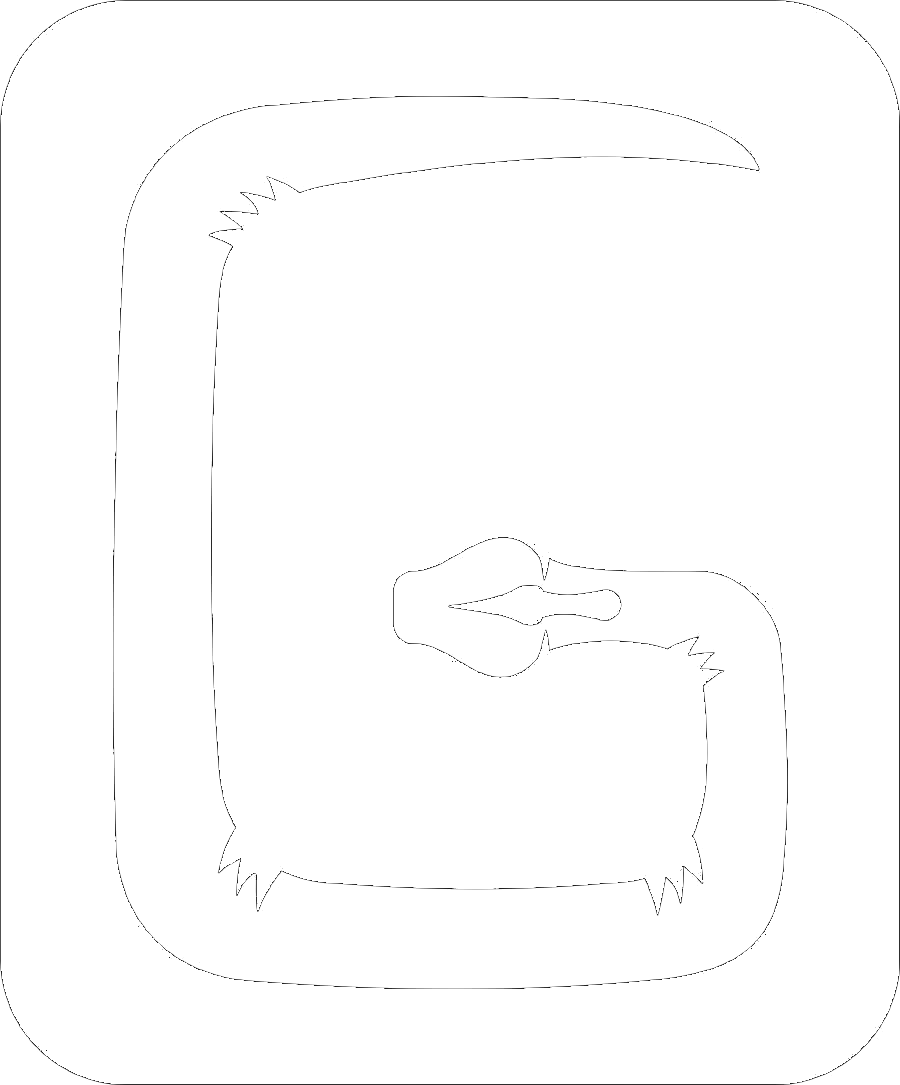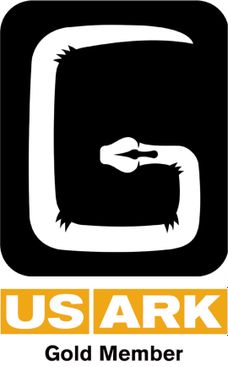Bearded Dragon Care
Scientific name: Pogona vitticeps
Natural habitat: Australia
Adult size: 10-24"
Life span: 8+ years
Reptile keeping experience: beginner to moderate
Below are the basics for keeping bearded dragons.
Cage: Young bearded dragons can be kept in 30" x 12" terrariums or specialty cages. Adults should be housed in terrariums at least 36" x 18" and two females or a mated pair of bearded dragons can be kept in this size cage. Floor space is more important than height. An escape-proof screen lid should be used on top of the cage.
Accessories: Use thick climbing branches and rocks to provide varying levels, especially in the basking area. A water dish should be provided. A thermometer and humidity gauge should be used to monitor cage conditions.
Humidity: Bearded dragons are desert reptiles so no additional humidity is required. A light misting of warm water will allow the lizards to drink and may aid in shedding.
Substrate: Generally, replicating the substrate found in a species native habitat is best. Sand mixed with certain soils, bioactive media, and/or clays is ideal. The use of proper sand WILL NOT cause impaction. While sand may collect on undigested exoskeletons of food due to improper husbandry, sand is not the cause. Improper husbandry (i.e. insufficient or no UVB, temperatures too low, parasites, etc.) causes impaction. NOTE: Be sure to use the right type of sand. Sands from hardware stores or other sources may be silica-based and will mix with water or saliva and become hard. Even some low-quality brands of reptile sands will do this. The granules of appropriate sands will not mix like concrete when wet. Be sure to test any sand you purchase.
Temperature/Lighting: The ambient cage temperature should be 79-83°F with a basking spot of 95-105°F. Night temperatures can drop to 70°F. Bearded dragons require UVB to metabolize calcium. Without UVB, bearded dragons will develop metabolic bone disease and will be unhealthy. The UVB light should be on 10-14 hours each day and combined with the hot spot. The dragons must be able to escape the UVB rays. The basking temperature can be reached with a mercury vapor bulb, ceramic heat emitter, or basking bulb. You may need to combine your overhead heat source with an under tank heater to reach proper temperatures. Keep all lights and heat on the same end of the enclosure as this will allow the lizards to thermoregulate. It is important to create a hot side and cool side in the tank so do not place heating and lighting in the center of the enclosure.
Diet/Feeding: Bearded dragons are omnivorous and it very important to vary their diet. Provide dragons with a mix of dark veggies every 1-2 days. Vegetable choices may include dandelion greens, collard greens, mustard greens, bok choy, kale, turnip greens, escarole and chicory. You can also mix other vegetables into the greens including all varieties of squash, green beans, parsnips, sweet potatoes, and snow peas. Avoid carrots and other foods high in Vitamin A. Fruits such as apples and bananas may be offered occasionally but avoid citrus fruits. When fresh veggies are hard to find, use canned vegetable (no sugar added) or a bearded dragon canned diet to vary the meals.
Insect prey items should be appropriately sized and remove any insects not eaten after an hour. Feed insects no larger than the space between the lizard's eyes. Young dragons may eat 20-40 properly sized crickets every day. Adults can be fed mealworms, superworms, other acceptable feeder worms, feeder roaches or large crickets daily and may be fed pinky mice occasionally. It is best to offer insects in multiple, smaller meals daily. Other insects including waxworms, zophobas worms, silkworms, butterworms, red worms, and certain species of cockroaches, such as dubia roaches, are great for variety.
A quality vitamin/calcium supplement with vitamin D3 is important. A sprinkle over the insects or salad every third feeding is sufficient for adults (every other meal for young bearded dragons).
© Copyright. All rights reserved. Content from this site may not be used without written consent from Phil Goss. Logo enhanced by Dozier Studio.
We need your consent to load the translations
We use a third-party service to translate the website content that may collect data about your activity. Please review the details in the privacy policy and accept the service to view the translations.

